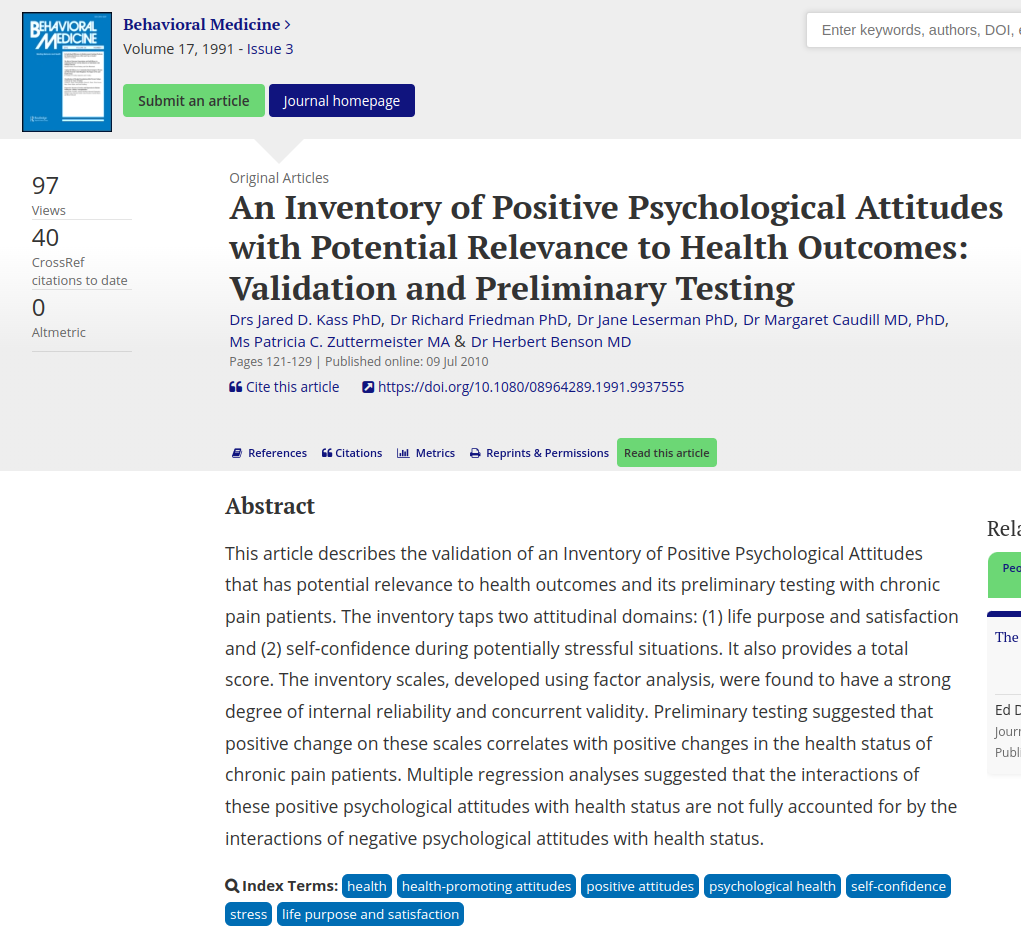This article describes the validation of an Inventory of Positive Psychological Attitudes that has potential relevance to health outcomes and its preliminary testing with chronic pain patients. The inventory taps two attitudinal domains: (1) life purpose and satisfaction and (2) self-confidence during potentially stressful situations. It also provides a total score. The inventory scales, developed using factor analysis, were found to have a strong degree of internal reliability and concurrent validity. Preliminary testing suggested that positive change on these scales correlates with positive changes in the health status of chronic pain patients. Multiple regression analyses suggested that the interactions of these positive psychological attitudes with health status are not fully accounted for by the interactions of negative psychological attitudes with health status.
An Inventory of Positive Psychological Attitudes with Potential Relevance to Health Outcomes: Validation and Preliminary Testing
Publication
Behavioral Medicine
Volume 17, 1991, Issue 3
Abstract
Web and Email Links
Related Listings
Journal
Minn Med.
Although the physiological and biochemical changes that occur during the acute stress response have been well-characterized, the contrasting changes that underlie the relaxation response evoked by various mind-body techniques are less understood. To help guide future mind-body research, we present a conceptual model that integrates patterns of change at the physiological and molecular levels. In addition, we point to future research opportunities and discuss how repeated elicitation o […]
Journal
Headache, the Journal of Head and Face Pain
PHYSIOLOGIC CHANGES consistent with the decreased sympathetic nervous system activity are present during the practice of a relaxation technique, Transcendental Meditation. The changes consist of decreased oxygen consumption, carbon dioxide elimination, respiratory rate and minute ventilation. Arterial blood lactate decreases markedly. Arterial blood pH and base excess decrease slightly. There are no changes in arterial blood pressure, in respiratory quotient, nor in rectal temperature […]
Journal
Behavior Therapy
The majority of individuals with insomnia treated with single behavioral interventions do not achieve normal sleep. In this study, individuals with chronic sleep-onset insomnia (n=12) were treated with a sequentially administered multifactor behavioral intervention consisting of sleep restriction, modified stimulus control, and relaxation training. They were compared to age- and sex-matched normal sleepers (n=14) prior to and following treatment using home-based polysomnography and po […]

